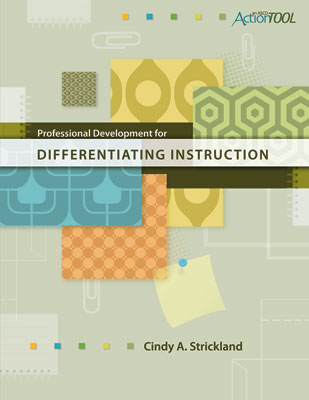
Professional Development for Differentiating Instruction: An ASCD Action Tool
$69.00
$55.20 member price join now
About
A teacher using differentiated instruction employs varied strategies to capitalize on the learning potential of every student. But how can teachers and administrators learn to use differentiated strategies by participating in professional development that is not differentiated for their needs? To best use differentiated strategies, they need to first see them in action.
Table of contents
Acknowledgments
Part One: Introduction and Action Tool Overview
Part Two: Tools for Administrators and Staff Development Leaders
Differentiation Essentials for Leaders